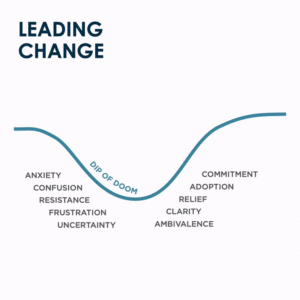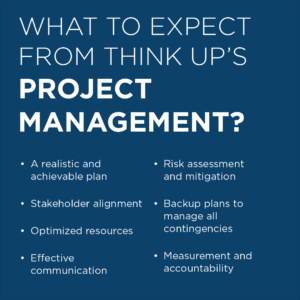What do consultants and dramaturgs have in common? If you answered with, “What in the world is a dramaturg?!,” you’re not alone! A dramaturg is a literary adviser who works on behalf of authors and playwrights. This can take an almost infinite amount of forms: researching older works by deceased playwrights to help the creative team understand what the playwright meant 200 years ago, to helping current playwrights realize the best version of the play they are writing. They weigh a writer’s creative vision against the audience experience in similar ways consultants navigate client strategy and end-user experience.
In our fifth installment of the “Conversations” series, we sat down with Mike Sablone, the Producing Artistic Director at The Warehouse Theatre in Greenville, SC to understand how he shapes creative works and challenges audiences.
He’s honed his knack for storytelling both on stage and on the screen. He was the dramaturg through the development and production of the Tony nominated musical Bloody Bloody Andrew Jackson, executive produced John Krasinski’s The Hollars, and co-produced Gus Van Sant’s Promised Land, among many other highly lauded creative endeavors. As a dramaturg and producer, he’s part interpreter, part consultant, and part curator, introducing audiences to carefully crafted bodies of work.
THE INTERPRETER
“I know you mean this, but the audience will hear that,” is advice Mike dispenses to his playwrights. As an interpreter and producer of creative work, he deciphers the intent of the author and assesses how it will land with audiences. After all, he’s an audience expert. Simply by listening to an audience, he can tell whether or not they’re engaged. Is there a swell of coughing coming from the audience? That could mean they’re more interested in clearing their throat than listening to the dialogue.
If you ask Mike who he ultimately serves, though, the writer or the audience, he’d likely answer with: the work itself. He enables authors to present a body of work that is the truest version of their vision. If you’ve ever embarked on a creative task, such as writing an article, mapping out a storyboard, or pitching a new concept, you have likely experienced the gap between what you so clearly see in your mind as a masterpiece and what your audience obviously doesn’t appreciate as intended. Part of Mike’s magic is mitigating the misunderstanding. He bridges the gap between author intent and audience experience by interpreting the meaning of one and the needs of the other to shape a work that connects the two.
THE CONSULTANT
As professionals, it’s not uncommon for us to take our work personally. This project is my strategic initiative to implement. Or it was my idea the team unanimously vetoed! But there’s something especially vulnerable and soul-bearing about producing creative work. We asked Mike how he consults writers on their work while building trust and collaboration. The answer: dating.
Mike approaches consulting the way one might a blind date. His first objective: be gracious and open – a comfortable and safe presence. Mike ensures writers know his role is not to dismantle their work or turn it into his work. His second objective: build rapport and understand how best to communicate with the writer. Are they persuaded by research and accuracy? Do they respond to more academic feedback? Is there feedback that a writer will simply never accept? Does he need to pull out the big guns and regularly drop references to Aristotle’s The Poetics for credibility? These inputs help Mike gently guide and coax writers as they refine their work.
THE CURATOR
In his role at The Warehouse Theatre, the only fully professional producing theatre in Greenville, Mike challenges audiences by introducing them to works that are thought-provoking, adventurous, and cutting-edge. Boldness, however, comes with inherent risks. What if you alienate or offend your audience? Mike is willing to make some artistic concessions, when necessary, to keep an audience receptive to the broader experience, but he is less interested in pandering to the audience of today and focused instead on building the audience of tomorrow. After all, comfort and complacency generate little gain. Growth comes from experimentation and discovery.
Somewhere out there is what Mike refers to as the “platonic ideal” of the audience. It’s an audience as diverse and unique as the productions they come to see. To move the needle closer to that ideal, Mike selects works with a couple of broad objectives in mind: first, to attract those in the community who either don’t know The Warehouse or think The Warehouse is not for them, and second, to re-introduce people who have a pre-conceived notion of The Warehouse based on a previous experience. The hope is that audience members encounter the unexpected, have the truths they hold challenged, and leave energized and curious for their next Warehouse experience.
Despite the volume of work that goes into producing a play, Mike holds no illusions of perfection. The beauty of theatre lies in its iterative nature. The point is to apply your talent and resources to the best of your ability and invite people into that experience. Where it breaks or fails is merely one point along the ongoing journey to create something better.
If you’d like to learn more about The Warehouse or experience one of Mike’s productions, visit them at www.warehousetheatre.com. You can also give them a follow on Instagram, Facebook, or Twitter.



